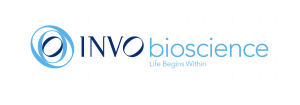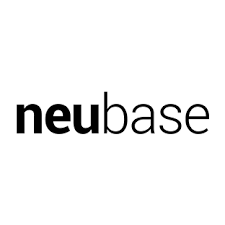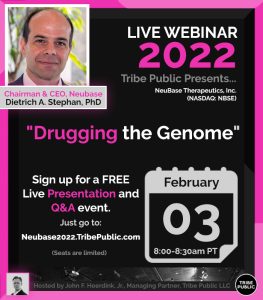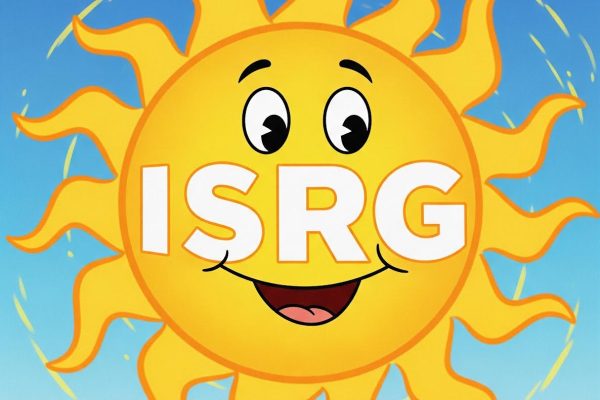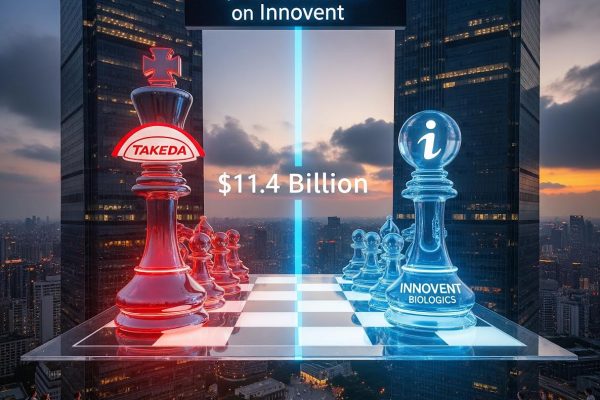Quote of the Day – “He who angers you conquers you.” – Elizabeth Kenny
The stock market in general was once again volatile and felt a bit like a scary rollercoaster ride for most on Thursday, but at least the ride was heading up at the end of the session. In fact, the small caps on the Russell 2000 produced a stand out performance as growth stocks caught a bid and it closed at 1,739.38 (+1.24%). This move comes in line with the Russell’s annual reconstitution process and associated adoption of new members and the dropping of old that do meet the requirements a year later. The Nasdaq also moved into the green at the end closing at 11,370.96 (+.06%) as the healthcare, consumer discretionary, & the real estate sectors led six of the eleven sectors that closed in positive territory. Both the S&P 500, which closed at 3,930.08 (-.13%) & the Dow 30, which closed at 31,730.30 (-.33%), fought their way back in the back half of the day too, but failed to turn positive. Overall growth concerns seemed to prevail today as the IEA reduced its global growth demand forecast for 2022 and in concert the yield curve pulled back as 2-yr treasuries dropped 13 basis points and the 10-yr dropped 10 basis points to close at 2.82%. Interestingly, two FOMC voters (St. Louis’ Bullard & SF’s Daly) stated that they believe a 50 basis point interest rate hike will be enough of a raise the next time they meet. Curiously, the CBOE Volatility Index (^VIX) closed lower again at $31.77, -2.43% and traded within a relatively tight range ($31.77-$34.69).
The macroeconomic schedule also offered a couple of reports including the Producer Price Index for final demand report, which showed a .5% rise M/M in April, but in line with expectations and speak of moderation rose as a result. The Initial jobless claims report for the week ending May 7 also confirmed a rise by 1k to 203k , while continuing claims for the week ending April 30 dropped by 44k to 1.343M.
The MicroCaps also managed to turn a shade of green as the iShares Micro-Cap ETF closed at $106.70, +.37%, but still dangerously close to its newly established 52-wk low of $116.
The biotech sector had a very respectable day as the SPDR S&P Biotech ETF (XBI), a barometer of the smaller biotech stocks, closed at $64.91, +3.34% after establishing a new 52-wk low of $61.79. The 52-wk range is now $61.59 – $141.50. The iShares Biotechnology ETF (IBB) also closed at $109.45, +2.81% after establishing a new 52-wk low of $105.39. The 52-range is $105.39 – $177.37. Hopefully this is a true turn for the good this time and not just a bounce!
Around the money and precious metals’ tree, the U.S. Dollar Index closed even higher at 104.80 (a 2 decade high) & Bitcoin (BTC) slid again to close at $28,268.90, -.12% over the last 24-hours and the crypto markets crashed further. Gold prices closed at $1,823 oz., -$31/oz. & silver closed at $20.71/oz., -$.87/oz. on the day. Two mining producers closed the day as follows: Hecla Mining Company (HL) closed at $4.20, -2.78% and First Majestic Silver Corp. (AG) closed at $7.43, -9.72%. On May 9, Hecla announced its first quarter 2022 financial results and highlighted silver production of 3.3 million ounces, a 3% increase over fourth quarter 2021 & that the Company’s silver mines reported total cost of sales of $78.9 million and cash cost and AISC per silver ounce (each after by-product credits) of $1.09 and $7.64 respectively.
Oil prices moved up 1.2% to $106.40/bb and needs to come back in line.
FURTHER AFIELD
Affirm (AFRM, $18.04, +23.31%), the payment network that empowers consumers and helps merchants drive growth, Bumble (BMBL, $22.36, +26.8%), the parent company of Bumble, Badoo, and Fruitz, & Rivian (RIVN, $24.30, +18.0%), designs, develops, and manufactures category-defining electric vehicles and accessories, jumped considerably today after beating the street’s expectations.
Shares of Blue Water Vaccines Inc. (BWV), a biopharmaceutical company developing transformational vaccines, closed at $6.71, +11.65%. The move came after yesterday’s
announcement of an expanded license agreement had been signed with St. Jude Children’s Research Hospital. Through research funded by Blue Water Vaccines, St. Jude designed genetic constructs to express bacterial proteins on the surface of Streptococcus pneumoniae.
This week, Cytovia Therapeutics, LLC , a global biotechnology company focused on harnessing the power of natural killer (NK) cells to fight cancer through multispecific antibodies and stem cell engineering presented at the AACR Special Conference on Advances in the Pathogenesis and Molecular Therapies of Liver Cancer, held from May 5-8, 2022, at the Westin Copley Place in Boston, Massachusetts. The conference is an in-person event and will not live-stream content, but Cytovia Therapeutics’s short poster video will be available for on-demand viewing by conference registrants after the conference and Cytovia Therapeutics’s poster will be available on its website under the “Resources” section.
Learn more.
On April 26, Isleworth Healthcare Acquisition Corp. (NASDAQ: ISLE) (“Isleworth”), a special purpose acquisition company and Cytovia Holdings, Inc.(“Cytovia”), a biopharmaceutical company empowering natural killer (NK) cells to fight cancer through stem cell engineering and multispecific antibodies
announced they have entered into a definitive business combination agreement. Upon consummation of this combination, Isleworth will be renamed Cytovia Therapeutics, Inc. (the “combined company”) and its common stock and warrants are expected to remain listed on NASDAQ under the ticker symbols INKC and INKCW, respectively. “
We are grateful for the strong support from new and existing investors and the team of seasoned entrepreneurs at Isleworth. We expect this transaction to accelerate the execution of Cytovia’s vision to advance NK therapeutics towards a cure for cancer” said Dr. Teper.
“We are encouraged by our preclinical data recently presented at AACR, which supports advancing development of our iPSC-derived NK cells (iNK) and Flex-NK™ cell engagers for the treatment of Hepatocellular Carcinoma.”
VP WATCHLIST UPDATES
Shares of Apple (AAPL) closed at $142.56, -2.69% and is now trading officially 20% off from its recent all-time high. Note that Apple enjoys a 6.82% weighting in the S&P 500.
On April 28, Apple announced financial results for its fiscal 2022 second quarter ended March 26, 2022. The Company posted a March quarter revenue record of $97.3 billion, up 9 percent year over year, and quarterly earnings per diluted share of $1.52. “This quarter’s record results are a testament to Apple’s relentless focus on innovation and our ability to create the best products and services in the world,” said Tim Cook, Apple’s CEO. “We are delighted to see the strong customer response to our new products, as well as the progress we’re making to become carbon neutral across our supply chain and our products by 2030. We are committed, as ever, to being a force for good in the world — both in what we create and what we leave behind. We are very pleased with our record business results for the March quarter, as we set an all-time revenue record for Services and March quarter revenue records for iPhone, Mac, and Wearables, Home and Accessories. Continued strong customer demand for our products helped us achieve an all-time high for our installed base of active devices,” said Luca Maestri, Apple’s CFO. “Our strong operating performance generated over $28 billion in operating cash flow, and allowed us to return nearly $27 billion to our shareholders during the quarter.”
Berkshire Hathaway CEO Warren Buffet recently gave praise to Apple CEO Tim Cook in the annual letter to shareholders, while the European Union levied antitrust charges on Apple.
Shares of Tesla (TSLA) closed at $728, -.82%. On April 20, Tesla reported that Q1 sales had jumped 81% even in the face of supply-chain disruptions, while Elon Musk promised a robotaxi for 2024. Many are now worried about it sales in China because of the lockdown.
Tesla has plans for another stock split and Elon Musk is also busy buying Twitter (TWTR)…
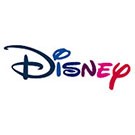
The Walt Disney Company (DIS) closed at $104.31, -.86%. This week, Disney reported earnings for its second fiscal quarter ended April 2, 2022 missing Ananlyst expectations: Revenue: $19.25 billion vs. $20.11 billion estimate, Adj. earnings per share: $1.08 vs. $1.17 estimate, & Disney+ subscribers: 7.9 million vs. 4.5 million expected. Note that revenues for the quarter and six months grew 23% and 29%, respectively, despite a $1.0 billion reduction for the amount due to a customer to early terminate license agreements for film and television content delivered in previous years in order for the Company to use the content primarily on our direct-to-consumer services. Diluted earnings per share (EPS) from continuing operations for the quarter decreased to $0.26 from $0.50 in the prior-year quarter. Excluding certain items(1), diluted EPS for the quarter increased to $1.08 from $0.79 in the prior-year quarter. EPS from continuing operations for the six months ended April 2, 2022 increased to $0.89 from $0.52 in the prior-year period. Excluding certain items(1), EPS for the six months increased to $2.14 from $1.11 in the prior-year period. Bob Chapek, Chief Executive Officer, The Walt Disney Company stayed, “Our strong results in the second quarter, including fantastic performance at our domestic parks and continued growth of our streaming services—with 7.9 million Disney+ subscribers added in the quarter and total subscriptions across all our DTC offerings exceeding 205 million—once again proved that we are in a league of our own. As we look ahead to Disney’s second century, I am confident we will continue to transform entertainment by combining extraordinary storytelling with innovative technology to create an even larger, more connected, and magical Disney universe for families and fans around the world.”

On the small side, Atossa Therapeutics (NASDAQ: ATOS), a clinical-stage biopharmaceutical company seeking to develop innovative proprietary medicines in oncology and infectious disease with a current focus on breast cancer and COVID-19, rose to an intraday high of $.96 prior to closing at $.9299, +2.67 on 1.03M shares of trading volume. On May 9,
Atossa announced the financial results for the fiscal quarter ended March 31, 2022, and provides an update on recent company developments. Key developments from Q1 2022 and to date include: Received issuance of key U.S. patent covering Endoxifen directed to compositions of storage-stable Endoxifen and methods of treating hormone-dependent breast disorders using the storage-stable Endoxifen, Announced planned U.S. Phase 2 clinical study of Endoxifen in the neoadjuvant setting (prior to surgery) to compare Endoxifen to standard of care in premenopausal women with breast cancer. A CRO has been engaged to work on this study and the Company also intends to retain a leading U.S. research institution to help manage the study. The Company anticipates submitting an IND to the FDA in the second quarter of 2022, Completed Part B (second of four parts) of Phase 1b/2a clinical study of AT-H201 in Australia.
“We continue to make steady progress with our Endoxifen programs: one to reduce tumor cell activity in breast cancer patients in the neoadjuvant setting; and another to reduce dense breast tissue in women,” commented Dr. Steven Quay, Atossa’s President and Chief Executive Officer.
“Our Phase 2 study in women with measurable breast density continues to enroll participants in Stockholm and we have been preparing to submit a request (IND) to the FDA this quarter to open a Phase 2 study in the neoadjuvant setting here in the Unites States. We began 2022 with significant progress in our COVID-19 program, both initiating and completing key parts of our Phase1b/2a trial in Australia for AT-H201, and we have now completed the first two parts of that study.”
On April 20, Atossa announced it has completed enrolling participants in Part B of its Phase 1/2a clinical study of AT-H201 in Australia, consisting of multiple ascending dose cohorts in healthy participants. AT-H201 is being developed as an inhalation therapy for moderately to severely ill hospitalized COVID-19 patients and for “long-haul” patients with post-infection pulmonary disease.
“Part B of the study was successfully completed and, subject to approval from the ethics committee, we will now proceed to enroll the next group of participants,” said Steven Quay, M.D., Ph.D., Atossa’s CEO and President.
“Despite widespread availability of vaccines, many areas of the world are seeing a recent surge in COVID-19 cases. There continues to be a strong need for additional therapies to combat COVID-19.” LEARN MORE.
On March 8, Atossa announced that the U.S. Patent and Trademark office has issued a new patent further strengthening Atossa’s intellectual property in its proprietary therapy Endoxifen, which is under development for breast cancer and other breast conditions. U.S. Patent No. 11,261,151 (the ‘151 Patent) is titled “Methods for Making and Using Endoxifen” and is directed to compositions of storage-stable Endoxifen and methods of treating hormone-dependent breast disorders using the storage-stable Endoxifen. “We are very pleased with the scope and breadth of this new key patent,” said Dr. Steven Quay, Atossa’s President and Chief Executive Officer. “Patents covering the composition of matter of new therapies are critical to protect markets from generic competition. The ‘151 Patent,’ with its estimated expiration in 2038, strengthens our intellectual property estate and should create long-term stockholder value.” Atossa is developing its proprietary Endoxifen in two clinical settings: one to reduce tumor cell activity in breast cancer patients in the neoadjuvant setting, meaning prior to surgery; and another to reduce dense breast tissue in women. A Phase 2 study is currently underway in women with measurable breast density and Atossa plans to submit a request (IND) to the FDA to open other Phase 2 in the neoadjuvant setting in the next quarter. Atossa’s neoadjuvant program is focused on breast cancers that are classified as estrogen receptor positive (ER+). Although there are numerous neoadjuvant treatments for breast cancers that are not ER+, there are few neoadjuvant treatments for ER+ breast cancer which comprises about 78% of all breast cancers. We believe there is a compelling need for therapy with our Endoxifen in this setting. An estimated ten million women in the U.S. have mammographic breast density, or MBD, for which there is no FDA-approved treatment. MBD is an emerging public health issue and studies conducted by others have shown that MBD increases the risk of developing breast cancer and that reducing MBD can reduce the incidence of breast cancer. The American Cancer Society estimates that in the U.S. in 2022, 287,850 women will be diagnosed with breast cancer, 47,550 of which will be under the age of 50 and 43,250 of which will die from the disease.
On Feb. 28, Atossa announced their financial results for the fiscal quarter and fiscal year ended December 31, 2021 and provides an update on recent company developments. Dr. Steven Quay, Atossa’s President and Chief Executive Officer stated,
“We continue to make significant progress on our Endoxifen and COVID-19 programs, with the continuation of enrollment of the Australian trial for AT-H201, as well as enrollment in our Swedish Endoxifen Phase 2 trial. We look forward to moving into the next milestones during 2022, and to providing updates on these developing therapies for urgent unmet patient needs. Further, our strong balance sheet will continue to facilitate our development plans as we not only execute on these trials but also explore additional options that could create significant shareholder value.” READ The Balance of the story.
On Jan. 27, Atossa issued the annual letter from President and CEO Dr. Steven C. Quay to Atossa stockholders. The letter Bega as follows:
“The last two years have changed the face of public health and uncovered the urgency to develop products not only to prevent widely spread infectious diseases, but to treat them with the same level of focus and dedication applied to prevention. Despite the launch of highly efficacious vaccines during 2021, the toll that COVID-19 was taking on public health was not reduced. The rise of the Omicron variant toward the end of the year, and emerging long-term impact of long COVID, remain an important public health priority, and one that Atossa is dedicated to addressing. A key feature of the original SARS-CoV-2 virus, and that is retained in both the Delta and Omicron variants, is the furin cleavage site found on the Spike protein which facilitates viral infection. Our COVID-19 programs under development are designed to interact with this cleavage site so they are expected to be effective against both current and future COVID-19 variants that continue to contain a furin cleavage site. In the meantime, we are also very excited about the ongoing development of our breast health programs with our proprietary drug Endoxifen, with one Phase 2 study underway and another expected to commence in the next quarter. We raised over $110 million in capital in 2021 and we are well positioned to execute on our programs in 2022.” Click here to read the balance of the letter now.
On Jan. 18, Atossa announced it is advancing to enroll participants in Part B of its Phase 1/2a clinical study of AT-H201 in Australia, consisting of multiple ascending dose cohorts in healthy participants. The nebulized formulation, AT-H201, is being developed as an inhalation therapy for moderately to severely-ill hospitalized COVID-19 patients and for “long-haul” patients with post-infection pulmonary disease. Part A of the study, which consisted of a single ascending dose group of 4 cohorts of healthy participants, has now been completed. The Australian Human Research Ethics Committee has reviewed the safety data from Part A and has approved the study to proceed to Part B. “The results of the first part of the study were extremely encouraging and the ethics committee concluded we may now proceed to enroll the next group of participants,” said Steven Quay, M.D., Ph.D., Atossa’s CEO and President. “A record number of hospitalizations driven by the Omicron variant is producing a crisis at many healthcare facilities. Additional therapies to combat COVID-19 are desperately needed.” The Phase 1/2 a placebo-controlled study will enroll a total of 60 healthy participants and moderately-ill hospitalized COVID-19 patients. The study has 4 parts: Part A – a single ascending dose part, Part B – a multiple ascending dose part, Part C – a combination part in healthy individuals, and Part D a combination in COVID-19 infected patients. The study is being conducted by Avance Clinical Pty Ltd., a leading Australian clinical research organization. AT-H201 is a proprietary combination of two drugs previously approved by the FDA to treat other diseases and by other administration routes. AT-H201 is intended to be inhaled via a nebulizer to improve compromised lung function for moderate to severely ill, hospitalized COVID-19 patients and for “long-haul” patients with post-infection pulmonary disease. In May 2020, we completed in vitro testing of AT-H201 which showed that the components of AT-H201 inhibit SARS-CoV-2 infectivity of VERO cells, which is a standard cell type being used to study infectivity of the coronavirus. The Phase 1/2a study in Australia and other clinical studies must be successfully completed and regulatory approvals must be obtained before AT-H201 may be commercialized. No assurance can be given than studies will be successful or that regulatory approvals will be obtained.
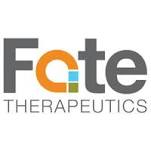
Shares of Fate Therapeutics, Inc. (NASDAQ: FATE), a clinical-stage biopharmaceutical company dedicated to the development of programmed cellular immunotherapies for patients with cancer, closed at $21.81, +1.7% after recently
reporting their business highlights and financial results for the first quarter ended March 31, 2022 on May 4th. “We have made significant progress across our disease areas, operations, and collaborations in early 2022, including preparing for submission to the FDA of our multi-disciplinary RMAT briefing package to inform pivotal study readiness in relapsed / refractory aggressive lymphoma, as well as our FT596 plus R-CHOP clinical protocol to initiate investigation in first-line patients,” said Scott Wolchko, President and Chief Executive Officer of Fate Therapeutics.
“We are also poised to treat the first solid tumor patient with FT536, our multi-antigen targeted CAR MICA/B NK cell product candidate, and have initiated IND-enabling activities for two CAR NK cell product candidates under our collaboration with Janssen. We look forward to providing clinical updates for our multiplexed-engineered, iPSC-derived NK and T-cell product candidates across our disease franchises in the second half of 2022.”
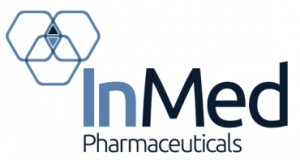
Shares of InMed Pharmaceuticals Inc. (NASDAQ: INM), a leader in the development, manufacturing and commercialization of rare cannabinoids, closed at $.81/share, but has traded up to $.91,+12.35% in the aftermarket.
On May 5, InMed announced that its subsidiary, BayMedica, will be providing rare cannabinoids for use in Radicle Science, Inc.’s Radicle Energy rare cannabinoid study to assess the effects of delta-9 (“d-9”) dominant tetrahydrocannabivarin (“THCV”) on energy, focus/attention, appetite and weight/BMI. BayMedia will be supplying its highly pure d-9 dominant THCV, formulated into a proprietary lozenge manufactured by Trokie. This rare cannabinoid, consumer-based investigation will measure the effects of the Company’s d-9 dominant THCV in a randomized, blinded, placebo-controlled study in up to 900 adult participants aged 21 and older who reside in the United States. The study includes three dosing groups including a placebo group (no THCV), each delivered via Trokie’s proprietary lozenge technology. The study is set to begin participant recruitment in May and will run for a four week period starting in June with results expected during the summer. The study is part of Radicle Science’s large scale investigations into several rare cannabinoids involving up to 10,000 participants in total, the largest of its kind to date.
On April 28, InMed announced the publication of a patent application in North America for several cannabinoid analogs. This patent application has broad claims directed to their molecular structure, uses and methods of manufacturing. Entitled “Cannabinoid Analogs and Methods for their Preparation”, the patent application describes several new cannabinoid-related chemical compounds that have not been previously described. If granted, the broad patent application allows for the creation of several variations of novel cannabinoid compounds, producing a robust library of proprietary new chemical entities (‘NCEs’). Scientists at BayMedica, LLC, InMed’s subsidiary in the US, designed and produced these cannabinoid analogs. These NCEs are expected to offer similar or improved therapeutic effects compared to their parent (naturally occurring) cannabinoid with modifications that may make them preferred candidates to treat specific diseases.
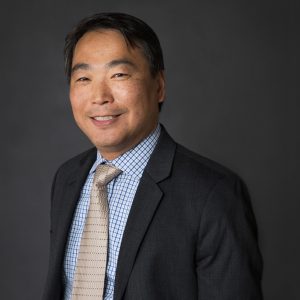
Eric Hsu, SVP, Pre-Clinical Research and Development for InMed commented; “We believe rare cannabinoids hold tremendous therapeutic potential that may address a number of unmet medical needs. This patent covers the selective modification of naturally occurring cannabinoids to target specific properties for pharmaceutical development. Such patent protection is an important component to ensure long-term commercial exclusivity as we continue to invest in R&D.”
On April 21, InMed announced it has launched B2B sales of the rare cannabinoid cannabidivarin (“CBDV”) to wholesalers, suppliers and end-product manufacturers in the health and wellness sector through its US subsidiary, BayMedica LLC.
“Ensuring a reliable, large volume source of highly pure, bioidentical CBDV is an important step forward in the health and wellness sector. CBDV has been researched for its therapeutic potential in several disease areas such as autism spectrum disorder,” said Shane Johnson, MD, SVP and General Manager of BayMedica. “
Whether you are a researcher or product developer at a multinational consumer package goods (‘CPG’) company, the ability to access highly pure and consistent active ingredients, free from contaminants typically found in plant-sourced cannabinoids such as pesticides, heavy metals, or potentially even THC, is a fundamental requirement. BayMedica’s cannabinoid manufacturing technologies provides exactly that value and we are excited to continue to introduce to the market additional rare cannabinoids that have previously not been abundantly accessible, including adding THCV to our portfolio in the immediate future.” LEARN MORE.
InMed Company’s executive team will be participating in several investor events throughout April and May 2022.
LEARN MORE.
On March 17, InMed announced that its Chief Financial Officer, Mr. Bruce Colwill, will be retiring and will be stepping down from his position at the Company effective March 31, 2022. Mr. Colwill will continue to serve as an advisor through June 30, 2022 to facilitate a smooth transition. Ms. Brenda Edwards has been appointed as Interim Chief Financial Officer of the Company effective April 1, 2022. The Company has initiated a search for a full time replacement. Ms. Edwards brings over 35 years experience to InMed including over 20 years as a Chief Financial Officer of both private and public companies. Her experience includes merger and acquisitions, financings, managing high growth situations and financial reporting. She is a member of both the American Institute of CPAs and the Chartered Professional Accountants of Canada.
On Feb. 15, Inmed announced the appointment of Gerard (Jerry) P. Griffin III as Vice President of Sales and Marketing at BayMedica, a wholly owned subsidiary of InMed. Mr. Griffin will oversee the commercialization of BayMedica’s health and wellness business including the existing products and the launch of new rare cannabinoid products. Mr. Griffin has a wealth of experience across various markets and with numerous cannabinoid products, and a proven track record as a seasoned sales executive. He has held several senior positions at both privately and publicly held companies including Fortune 500 companies. Most recently, Mr. Griffin was the Vice President of Sales and Business Development at Creo Ingredients, a biotechnology-based ingredient company that produces rare cannabinoids. Prior to Creo, he was the President of a successful wellness company, overseeing all aspects of a business that develops and distributes cannabinoid-based products. With his extensive hands-on experience in the rapidly expanding cannabinoid industry, he brings significant real-world knowledge across the entire value chain to the Company.
On Feb. 14, InMed announced financial results for the second quarter of fiscal year 2022 which ended December 31, 2021. They highlighted that they completed the acquisition of BayMedica, a rare cannabinoid manufacturing and commercialization company in the health and wellness sector, they strengthened IP with patent filing for use of rare cannabinoids for the treatment of neurodegenerative diseases, they initiated the commercial rollout of an additional rare cannabinoid, CBT- first of several rare cannabinoid launches planned for the first half of 2022, & they advanced the pharmaceutical drug development programs in EB, glaucoma and neurodegenerative diseases.
READ THE BALANCE OF THE RELEASE.
On Jan. 19, InMed announced that it has launched B2B sales of the rare cannabinoid cannabicitran (CBT) into the health and wellness sector. CBT is the first of several new product launches planned for the first half of 2022. InMed’s subsidiary, BayMedica, has received initial purchase orders and has commenced commercial sales of the ultra-rare cannabinoid CBT. CBT is the second rare cannabinoid to be launched by BayMedica, which also sells CBC wholesale as a raw ingredient to the health and wellness sector. Additionally, commercial scale production of cannabidivarin (CBDV) is underway, with tetrahydrocannabivarin (THCV) production scheduled to follow shortly thereafter. The Company expects to produce over 100kg of CBDV and THCV in the coming months to meet anticipated initial demand. Shane Johnson, SVP and General Manager of BayMedica stated, “We are delivering on our objective to launch additional rare cannabinoids in early 2022 in response to inbound demand. By midyear, we expect to have at least four rare cannabinoids available for the health and wellness markets, positioning us as a leading large scale supplier of high quality rare cannabinoids in these sectors. The launch of CBT further demonstrates our ability to produce rare cannabinoids at commercial scale, an achievement that very few companies have been able to accomplish. We are pleased with initial demand and we expect to grow sales over the coming quarters as we continue to expand our product portfolio of rare cannabinoids.” This emerging market is expected to grow significantly due to the increasing awareness of the potential benefits of cannabinoid-based products. According to the December 2021 Grand View Research report, the retail market for rare cannabinoids is expected to reach US$26 billion by 2028 with a forecasted compounded annual growth rate (CAGR) of >20% during the same period. With the availability of these rare cannabinoids at commercial scale, product manufacturers and consumer brands now have the ability to deliver differentiated products, including augmenting existing CBD-based products, to consumers in the health and wellness marketplace.
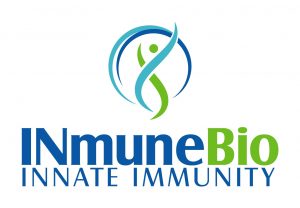
Shares of INmune Bio, Inc. (NASDAQ: INMB), a clinical-stage immunology company focused on developing treatments that harness the patient’s innate immune system to fight disease, closed at $6.60, but has traded up to $6.90, +3.92% in the aftermarket. On May 9, Professor Lesley Probert Ph.D., head of the department of Immunology at the Hellenic Pasteur Institute in Athens, Greece wpresented data on the effects of tumor necrosis factor (TNF) in MS at the 3rd European Conference on Neuroinflammation concluding in London today. Professor Probert has been researching the role of TNF in promoting demyelination (destruction of myelin) for more than a decade. Myelin is a critical component to normal central nervous system function. The myelin sheath, produced by oligodendrocytes, is critical for normal nerve function. When the myelin sheath is damaged, nerve cells cannot transmit signals efficiently and, if the damage persists, the cells undergo neurodegeneration and die. Demyelination is a common feature across many neurodegenerative diseases. A decade ago, Professor Probert’s laboratory showed that in rodent models of MS, XProTM promoted remyelination (the repair of myelin) in white matter whereas currently approved non-selective TNF inhibitors promote demyelination. Her laboratory works to understand why soluble TNF causes demyelination and identifies therapies that promote remyelination. n the presence of neuroinflammation, dysfunctional microglial cells promote nerve cell death, synaptic impairment, and demyelination. The data presented today show that XProTM also promotes remyelination within the gray matter of the brain by inducing the brains natural repair mechanisms. Neutralization of soluble TNF with XProTM activates pro-microglial and pro-astroglial responses to clear (phagocytize) degenerated myelin and promote remyelination in cortical areas.
These data are presented in detail here.
On May 5, INMB reported its financial results for the quarter ended March 31, 2022 and provided a business update. The company highlighted that they had dosed the first Phase 2 Mild Alzheimer’s Disease Patient with Xpro1595, Presented Data from Ongoing INKmune™ Studies Suggesting Increased NK Cell Treatment Effective Against Solid Malignancies, & $66.7 Million in cash as of March 31, 2022.
READ the entire release.
On April 13, INmune bio announced dosing of the first patient enrolled in its Phase 2 trial using XPro1595 (XPro™) to treat neuroinflammation as a cause of Alzheimer’s disease (AD). The Phase 2 multicenter, international trial is a blinded, randomized, placebo-controlled six-month Phase 2 trial designed to evaluate XPro™ to treat cognition and function in patients with mild AD and biomarkers of inflammation. The company plans to enroll patients at sites located near major metropolitan areas in Australia, in Canada and in the United States. “The Phase 1 study data clearly showed an improvement in multiple biomarkers related to AD pathology, including a reduction in neuroinflammation and neurodegeneration, and an improvement in biomarkers of neurorepair and neuron communication,” said Dr. C.J. Barnum, INmune Bio’s Vice President of CNS Development. “This Phase 2 study will determine whether improvement in these biomarkers translates into a clinical benefit of improved cognition and function in patients with mild AD and biomarkers of inflammation.”
On April 11, INmune Bio announced data demonstrate that INmune Bio’s INB03 reverses MUC4 experssion in HER2+ BC cell line (JIMIT-1) to re-establish sensitivity to trastuzumab (traz) and tyrosine kinase inhibitors (TKI). Mucin 4 (MUC4), a glycoprotein is an easily measured biomarker in women with breast cancer. Previously, INmune Bio reported MUC4 expression predicts worse survival in women with HER2+ BC (p≤0.04). Study results show this new evaluation focused on the effects of MUC4 expression on the immune cells of the tumor microenvironment (TME) in HER2+ BC. These data were presented here today at the American Association of Cancer Research Annual Meeting in 2022, held in New Orleans April 8-13. The findings of this study predict that women with MUC4+/HER2+ BC are expected to have fewer tumor infiltrating lymphocytes (TILs) than women who do not express MUC4 (p=0.018). In a nude mouse model of MUC4+HER2+ BC, the combination of INB03+traz increased the number of activated NK cells (p=0.01) and anti-tumor macrophages (p=0.01) in the TME. In this nude mouse model, anti-tumor macrophage function is more important than NK cell function in controlling tumor growth. Dr. Roxana Schillaci of Instituto de Biología y Medicina Experimental in Buenos Aires stated, “We have previously shown that MUC4 expression correlates with resistance to traz and TKI. We can add third resistance mechanism to the list – an immunologically “cold” TME. These three resistance mechanisms are driven by soluble TNF produced by the tumor and are reversed by INB03 in the animal models.” RJ Tesi MD, CEO of INmune Bio stated, “Resistance to immunotherapy occurs in about a third of women with HER2+ BC. MUC4 is a biomarker of resistance that can be determined from the patient’s biopsy. Identifying a modifiable resistance factor early may allow the clinical team to optimized immunotherapy to improve outcome.”
On April 4,
INmune Bio highlighted key findings from the NK Cells in Solid Tumors workshop. Dr. Mark Lowdell, INmune Bio’s Chief Scientific Officer (CSO), led the workshop on the role of NK cells in treatment of solid tumors during the Innate Killer Summit in San Diego (March 30 -April 1, 2022). The conference is widely viewed as one of the most important in translational NK cell immunotherapy. Two consistent themes of this year’s conference were the importance of memory-like NK cells and the poor in-vivo survival of adoptively transferred allogeneic NK cells, with or without genetic modification. Strategies to improve NK cell “fitness” and improve NK cell metabolism were at the forefront. NK cell dysfunction and poor survival in the recipient and, in particular the TME may be due to damaged mitochondria – considered the “powerplants” of the cell that are essential for survival. Dr. Lowdell observed that INKmune™, unlike IL15 and other NK-activating cytokines, simultaneously upregulates all mitochondrial survival proteins and more than 40 nutrient receptors on the NK cell. These unique changes may help INKmune-primed NK cells survive and thrive in the hypoxic immunosuppressive TME. Data from patients treated with INKmune™ have shown tumor killing memory-like NK cells present in peripheral blood and bone marrow for at least 15 weeks after INKmune™ therapy and provoked a lot of discussion about whether INKmune™ can be used in combination with adoptive NK therapies to sustain the memory-like phenotype and increase survival.
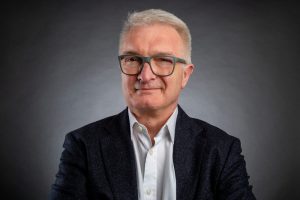
Dr. Lowdell, CSO of INmune Bio stated, “For NK cells to become relevant in the treatment of solid tumors, several problems must be solved. At the workshop, we presented how INKmune™, INmune Bio’s NK cell therapeutic, may solve these problems as demonstrated by published and unpublished pre-clinical and clinical data from the INKmune™ Phase I trial in high-risk MDS. A common therapeutic strategy is giving ex vivo-activated NK cells from peripheral blood which are conditioned to normal oxygen levels. Hoping that these cells track to the tumor and aren’t inhibited by the hypoxic, immunosuppressive TME does not align with our understanding of tumor biology in patients. Activation of tumor-resident NK cells in vivo is likely to be important for patient treatment and tumor-activated NK cells seem to be better than cytokine-primed NK cells in surviving the hostile hypoxic and immunosuppressive environment of the TME. As far as we know, INKmune™ is the only agent which can give the pleiotropic NK activating signals that improve NK function in the hostile immunosuppressive and hypoxic environment of the TME. I came away from this meeting even more convinced that INKmune™ can have a major impact in current and future NK immunotherapies in hematological and solid tumors and with a list of potential new collaborators for our future trials.”
Since the last Innate Killer Summit, INmune has treated three patients with INKmune™ The first MDS patient, a 74-year-old man, remains stable 9 months after therapy. Updated results at the lowest dose cohort of INKmune treatment at day 119 show: NO side effects – NO evidence of alloresponse to INKmune™, Evidence of disease control and maintenance of MRD after 3 doses, Improved BM function – No G-CSF / Platelet independent, Improved ECOG score from 2 to 0, Production of tumor killing memory like NK cells., & Persistence of activated NK cells in blood to Day 119 at least. The company also reported that a 21-year-old female with relapsed AML and mixed chimerism after stem cell transplant reestablished 100% donor chimerism after INKmune™ therapy. She remains under close observation as an out-patient more than 6 months after INKmune™ therapy. The third patient, a young man with AML who failed two transplants remains desperately ill. “The Innate Killer Summit is the best place to share our data and discuss our pre-clinical and clinical results with the community of scientists developing NK-based immunotherapies”, added Dr Lowdell.
On March 25,
INMB announced reviews findings from data presented at AD/PD™ 2022 – International Conference on Alzheimer’s and Parkinson’s diseases. The AD/PD™ 2022 International Conference was from March 15-20 in Barcelona, Spain.
“The field of AD is changing rapidly as treatments beyond amyloid and tau are explored. Targeting neuroinflammation, the use of biomarkers, and novel clinical trial designs are changing the way drugs are developed for this challenging disease,” said R.J. Tesi, INMB’s CEO.
“In my opinion, there are three key observations that put the nine presentations by INmune Bio in perspective. We remain convinced that targeting glial activation with Xpro™ is a smart strategy.”
On March 23, eight Form 4’s were filed representing a significant increase in insider buying in INMB’s stock. Please see filings at the direct link at
sec.gov.
Shares of INVO Bioscience, Inc. (NASDAQ: INVO), a commercial-stage fertility company focused on expanding access to advanced treatment worldwide with its INVOcell® medical device and the IVC procedure it enables, closed at $1.42 and has traded up to $1.51, +7.09% in aftermarket trading. INVO will report financial results for its first quarter 2022, ended March 31, 2022, after the market close on Monday, May 16, 2022. The Company has scheduled a conference call that same day, Monday, May 16, 2022, at 4:30 pm ET, to review the results. Interested parties can access the conference call by dialing 833-756-0861 or 412-317-5751.
On April 28, INVO announced that in celebration of this year’s National Infertility Awareness Week (“NIAW”), three eligible patients will be granted a full IVC treatment cycle free of charge. The grant program, including patient selection, will be launched in the coming weeks. NIAW is a movement, founded in 1989 by RESOLVE, with a mission to empower patients and help those struggling to build a family. “We are committed to helping people suffering with infertility challenges have access to effective and affordable care,” stated Steve Shum, INVO CEO. “This grant program will benefit selected recipients and is part of our efforts to build awareness and educate patients on INVOcell as an effective and available treatment. We believe our INVOcell technology and the IVC treatment can provide an affordable solution for patients diagnosed with infertility, and can help address key industry challenges regarding cost, capacity constraints and access to care for the large, underserved patient population. We have three operational INVO Centers treating patients in Birmingham, Alabama, Atlanta, Georgia, and Monterrey, Mexico, with others scheduled to open in the San Francisco, Tampa and Kansas City areas later this year. In collaboration with our partners in Atlanta, we are pleased to offer this grant program and encourage people with fertility challenges to reach out to our INVO Center to check eligibility and receive details.” Bloom Fertility, an INVO Center, 6 Concourse Parkway, Suite 250., Atlanta, GA 30328, Ph 678-597-9933,
hellobloomfertility.com.
On April 14, INVO Bioscience announced plans to open an INVO Center in Kansas City, Missouri. The Kansas City INVO Center will focus on patients in need of advanced fertility care utilizing the efficient, effective, and affordable INVOcell® solution. The Company currently has three operational INVO Centers treating patients in Birmingham, Alabama, Atlanta, Georgia, and Monterrey, Mexico, with others scheduled to open in the San Francisco and Tampa areas. The Company evaluates several criteria and data points as part of its efforts to identify markets suitable for INVO Centers. Based on an analysis of current population statistics, we believe that Kansas City may have upwards of 33,000 patients suffering with Infertility. With an estimated 1,500 IVF treatments annually, there exists a large gap of available care to treat local demand. Similar to other INVO Centers, the Company expects to engage physician partners to support its efforts in the Kansas City market.
- Regained full U.S. commercialization rights to sell its INVOcell® solution directly into existing in vitro fertilization (IVF) clinics, to expand the number of U.S. INVO Centers free of any limitations, and to pursue its market expansion strategy focused on increasing access to care and democratizing fertility care for the underserved patient population.
- Opened three INVO Center’s in 2021, including Birmingham, Alabama, Atlanta, Georgia, and Monterrey, Mexico with another clinic scheduled to open in the San Francisco area. The Company recently identified Tampa, Florida as the location of the next INVO Center.
- Entered into an agreement with Ovo in Spain to expand INVOcell® commercialization in all four of their Ovoclinics, establish a European center of excellence and training site for INVOcell® and the IVC procedure, and leverage Ovobank’s fertility clinic relationships across Europe.
- Completed the acquisition of a Canadian-based entity, originally formed to offer INVOcell®, to advance distribution efforts in Canada, where the product is already approved by Health Canada and cleared for importing.
- Obtained regulatory approval to commercialize INVOcell® in Thailand and Nigeria.
- Presented four poster abstracts discussing INVOcell® at the 77th Scientific Congress & Expo of the American Society for Reproductive Medicine held in Baltimore, Maryland in October 2021.
- Revenue was $4.2 million for the year ended December 31, 2021, including $2.9 million due to the accelerated recognition of deferred revenue from the Ferring license, and compared to $1.0 million for the previous year.
- Adjusted EBITDA for 2021 was $(2.8) million, which included a $0.7 million loss attributable to the Company’s joint ventures, compared to $(3.7) million in the prior year (see Adjusted EBITDA Table).
Steve Shum, CEO of INVO stated, “2021 was an exciting year for INVO as we opened our first INVO Center clinics. Our INVO Center model represents a strategy aimed at expanding adoption of INVOcell® and allowing us to capture a significantly larger percentage of the per-cycle IVC procedure revenue it enables. The INVO Centers are designed to offer attractive economics for our shareholders, medical practitioner partners and patients, and we believe are key to our efforts to address the fertility industry’s biggest challenges of cost and capacity. In addition to our announced plans to open additional centers in the San Francisco Bay Area and Tampa, Florida, we are evaluating over 20 additional US locations which represent attractive opportunities to open new INVO Centers. We also are in discussions for similar ventures across the globe. On the distribution side of our business, during the first quarter of 2022, we began selling directly to existing IVF fertility clinics in the U.S., after regaining full domestic commercialization rights to the INVOcell® upon termination of our prior agreements with Ferring. We are also seeing increased distribution activity from some of our partners in Europe and Africa. We are enthusiastic about our multi-channel strategy of supporting, servicing, and expanding across existing IVF clinic networks and building new, dedicated INVO Centers. We expect this strategy to drive increased market awareness and utilization of our revolutionary technology, and provide an affordable and equally effective fertility treatment alternative to the large, underserved patient population.”
INVO Bioscience recently exhibited the INVOcell solution at the 2022 Pacific Coast Reproductive Society (PCRS) Annual Meeting that took place March 23-27 at the Renaissance Esmeralda Resort & Spa in Indian Wells, CA. Chris Myer, INVO’s Senior VP, Business Development, Americas, and Bojan (Bo) Mitrovic, PhD, INVO’s Director, Sales, US both were available in Booth #314 discussing INVOcell with the broader Assisted Reproductive Technology (ART) physician community.
Steve Shum, CEO of INVO Bioscience, commented, “A key component to our go forward commercialization strategy is to synchronize and take an expanded, more comprehensive and direct approach toward our U.S. efforts. PCRS provides us an opportunity to easily connect with a number of U.S. IVF clinics that have already trained on the INVOcell device and the IVC treatment process, as well as introduce our solution to additional clinic operators interested in expanding their treatment options and overall capacity by introducing INVOcell to patients.” Pacific Coast Reproductive Society is a multidisciplinary medical specialty society providing Continuing Medical Education (CME) to physicians and allied healthcare professionals. The PCRS Annual Meeting provides an outstanding forum for the exchange of information and the advancement of the ideologies of reproductive medicine in a relaxed and collegial setting. Session topics have been carefully selected to bring you the highest quality, innovative CME, designed and presented by thought leaders in reproductive medicine.
On January 19, Maxim Group’s sell side analyst Jason McCarthy, Ph.D. initiated coverage with a Buy Rating Report titled “INVO Bioscience: Transforming Assisted Reproductive Technology with Intravaginal Culture” with a $7 Price Target.
Shares of NeuBase Therapeutics (NASDAQ: NBSE), a biotechnology platform company Drugging the Genome™ to address disease at the base level using a new class of precision genetic medicines, closed at $.94. The 52-wk range is $.89-$5.90.
On May 2, NeuBase announced two abstracts have been accepted for presentation at the American Society of Gene and Cell Therapy (“ASGCT”) 25th Annual Meeting, taking place virtually and in person in Washington, D.C., May 16-19, 2022.NeuBase will present new preclinical data on the biodistribution in key tissues of the company’s lead candidate, NT-0231.F, a precision genetic medicine in development to treat myotonic dystrophy, type 1 (“DM1”). NeuBase recently presented data at the 2022 MDA Clinical & Scientific Conference demonstrating that systemic administration of NT-0231.F in the HSALR model achieves clinically relevant molecular and functional rescue, including rescue of the spliceopathy, resolution of nuclear aggregates, and reversal of myotonia (delayed muscle relaxation after contraction). Pharmacokinetic studies of NT-0231.F in wild-type BALB/C mice showed a single IV or SC dose achieved high volume of distribution.
The presentations and the full abstracts are available on the ASGCT meeting website.
On March 16 and March 17, recently appointed Neubase CFO, Todd Branning (Jan. 10 , 2022), purchased 10,000 shares of NBSE stock each day for a total of 20,000 shares at $1.62/share and $1.74/share respectively. Here’s the
Form 4 filing at the SEC. Mr. Branning has more than 25 years of experience leading corporate finance and accounting, tax, financial planning and analysis, and investor relations for several publicly traded pharmaceutical companies. Prior to joining NeuBase, Mr. Branning was CFO of Phathom Pharmaceuticals, Inc., a publicly traded late clinical-stage biopharmaceutical company. Before that, he was Senior Vice President, CFO of Amneal Pharmaceuticals, Inc., a publicly traded pharmaceutical company, where he helped to build, leverage, and optimize infrastructure following the completion of a transformational merger. Prior to joining Amneal, he was Senior Vice President, CFO of the global generic medicines division at Teva Pharmaceutical Industries Ltd., a multinational generic pharmaceuticals company, where he led the finance function and served on the leadership team responsible for managing the day-to-day operations of Teva’s largest multi-billion-dollar commercial unit. Mr. Branning has also held financial leadership roles at Allergan plc, PricewaterhouseCoopers LLP, PPG Industries, Inc., and Merck & Co., Inc. Mr. Branning received his BBA from the University of Miami and MBA from Carnegie Mellon University. Mr. Branning is also a Certified Public Accountant and has completed a CFO certification program at The Wharton School at the University of Pennsylvania.
On March 13, Neubase announced new preclinical data for its lead development candidate, NT-0231.F, to treat myotonic dystrophy type 1 (DM1). These data are being presented in poster and oral presentations at the 2022 MDA Clinical & Scientific Conference, which is taking place virtually and in-person in Nashville, Tennessee from March 13-16, 2022. These data was presented at the RNA Leaders World Congress in Basel on March 17th.
Sandra Rojas-Caro, M.D., Chief Medical Officer of NeuBase, said, “DM1 is a significant unmet medical need characterized by myotonia, muscle weakness and wasting, and cognitive impairments. We are excited to present new preclinical data for our lead candidate, NT-0231.F, to support our differentiated approach for DM1. Systemic administration of NT-0231.F achieves clinically relevant molecular and functional rescue in the muscle in the HSALR model, which reproduces many components of the disease. Initial pharmacokinetic data supports a whole-body solution to the disease, and additional preclinical work is in progress to assess biodistribution in key tissues. These data are an important milestone in our DM1 development program and support our pursuit of a best-in-class therapeutic profile for the disease.”
A single intramuscular dose confirmed that NT-0231.F is pharmacologically active in the muscle and drives molecular and functional rescue in the HSALR model, including splice rescue, nuclear aggregate resolution, and myotonia (delayed muscle relaxation after contraction) reversal. A single intravenous (IV) dose of NT-0231.F or multiple subcutaneous (SC) doses over a 28-day period broadly rescued splicing, including the chloride channel (Clcn1) transcript, and reversed myotonia in the model. A single IV dose of NT-0231.F provides initial splice rescue at around two weeks, with significant splice rescue around three weeks. Myotonia reversal was achieved at around four weeks, with effects enduring to at least six weeks, the longest time point tested so far. A time course of multiple SC doses across increasing concentrations of NT-0231.F was also investigated and showed splice rescue and myotonia reversal in a dose-responsive manner, illustrating feasibility of the differentiated and patient-friendly SC route. In pharmacokinetic studies of NT-0231.F in wild-type BALB/C mice, a single IV or SC dose showed high volume of distribution, suggesting wide tissue distribution.
Dietrich A. Stephan, Ph.D., Founder, Chief Executive Officer, and Chairman of NeuBase, said, “We now have preclinical data in the gold-standard animal model for our development candidate demonstrating robust reversal of myotonia, as measured by muscle relaxation in these studies. We believe we are the only company that has shown improved muscle relaxation after systemic routes of administration. The HSALR model is also a high bar for human disease in that it contains at least 10x more mutant gene CUG- repeat targets than patients, giving us further conviction in the robustness of our approach. Not only does this data support the further advancement of our lead program in DM1 and keep us on track for submitting an Investigational New Drug application to the U.S. Food and Drug Administration in 4Q CY2022, it also validates that we can utilize our PATrOLTM platform to design novel genetic medicines that target and rescue many other gene dysfunctions, with the potential for clinically impactful outcomes in both rare and common diseases.”
On Jan. 5, Neubase announced the appointment of Eric J. Ende, M.D., to the Company’s Board of Directors. Dr. Ende has nearly 25 years of experience in advising biotechnology and life sciences companies to optimize corporate strategy and structure and maximize shareholder value. “Dr. Ende has the experience and perspective to recognize the opportunity ahead for NeuBase as it plans for the clinical development of its potentially transformational new class of precision genetic medicines,” said Dietrich A. Stephan, Ph.D., Founder, CEO and Chairman of NeuBase. “We welcome Dr. Ende’s strategic insight as we begin to scale our therapeutic candidate pipeline from our new precision genetic medicines platform technology. In addition to his broad experience, he also shares in our Company’s goal of helping millions of patients with both common and rare conditions that currently have limited or no treatment options.” “I believe NeuBase has a game-changing technology that overcomes the limitations of early precision genetic medicines by delivering mutation selectivity, repeat dosing, and systemic administration in a modular precision medicine platform with the potential to efficiently scale to treat a wide variety of diseases that are currently undruggable,” said Dr. Ende. “I look forward to working closely with NeuBase’s leadership team and Board of Directors to elevate strategy and operations in order to create exceptional value for patients and shareholders.” Dr. Ende currently is the President of Ende BioMedical Consulting Group. He also is a member of the Board of Directors of Matinas BioPharma, where he is the Chairman of the Compensation Committee and serves on the Audit and the Nomination & Governance Committees, and of Avadel plc, where he is the Chairman of the Nomination & Corporate Governance Committee and serves on the Audit and Compensation Committees. Dr. Ende previously served on the Board of Directors of Progenics (acquired by Lantheus Holdings) and Genzyme (acquired by Sanofi-Aventis for $20 billion). During his time on Genzyme’s Board of Directors, Dr. Ende was a member of the Audit and Risk Management Committees. Prior to Genzyme, Dr. Ende was a biotechnology analyst, previously serving at Merrill Lynch, BofA Securities, and Lehman Brothers. Dr. Ende received an M.B.A. from NYU Stern School of Business, an M.D. from the Icahn School of Medicine at Mount Sinai, and a B.S. in biology and psychology from Emory University.












